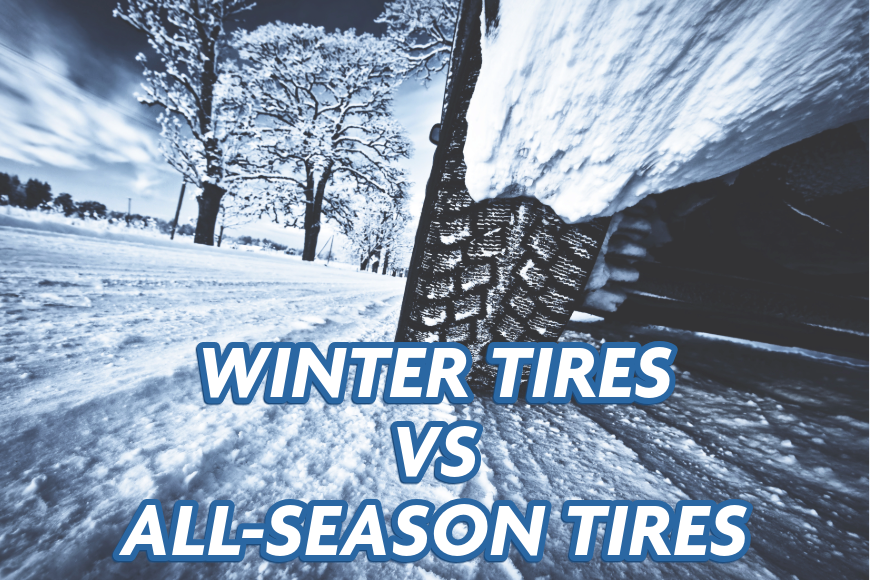- October 15, 2024
- By Tess
- In Tires
- Tags Vehicle Tips, Winter Driving
- 401
- 0

The debate between winter tires and all-season tires is ongoing, but understanding the distinctions can help you make an informed choice. Here’s a breakdown of winter tires versus all-season tires, highlighting their pros and cons for winter driving.
Winter tires are specifically designed to handle the challenges of driving in severe cold, ice, snow, and slush. They are made from a softer rubber compound that remains flexible in cold temperatures, which improves traction. Their tread patterns are also deeper and more pronounced, and they have biting edges that grip into the ice and snow.
All-season tires are designed to be versatile, providing adequate performance in a variety of driving conditions, from dry and wet to light snow. They are made from a harder compound that can handle a broad range of temperatures, but they become less flexible in severe cold.
– Superior traction in snow and ice: Their tread design allows for better grip during the most challenging winter conditions.
– Enhanced braking performance: Winter tires reduce braking distance significantly on icy roads compared to all-season tires.
– Greater safety: By providing better handling and stopping capabilities, they increase overall safety in winter conditions.
– Wear out faster in warmer conditions: The soft rubber compound can wear down quickly if used in temperatures that are too high.
– Need for changeover: You’ll need to switch back to all-season or summer tires as the weather warms, requiring storage for the off-season set.
– Convenience: No need to change tires with the seasons, which can save time and effort.
– Cost-effective: Eliminates the need for purchasing and maintaining two sets of tires.
– Good performance in mild winter conditions: Suitable for regions with light, infrequent snowfall.
– Limited winter performance: They can become hard and lose flexibility in severe cold, leading to decreased traction and safety.
– Compromised efficiency: Not as effective as winter tires in snow or ice, nor as summer tires in warm weather.
If you live in an area with harsh winters, including heavy snow and ice, winter tires are undoubtedly the safer choice. For milder winters or regions where snow is infrequent, all-season tires might be adequate.
Assess how often you’re on the road in winter conditions and what types of roads you typically drive on. Those who travel frequently through snowy areas will benefit from winter tires’ enhanced safety features.
Choosing which tires are right for your vehicle depends largely on your specific winter driving conditions and safety requirements. While all-season tires offer convenience, winter tires provide unmatched performance in severe winter conditions, ensuring your safety during the coldest months. Need help deciding which are best for you? Contact us today!





